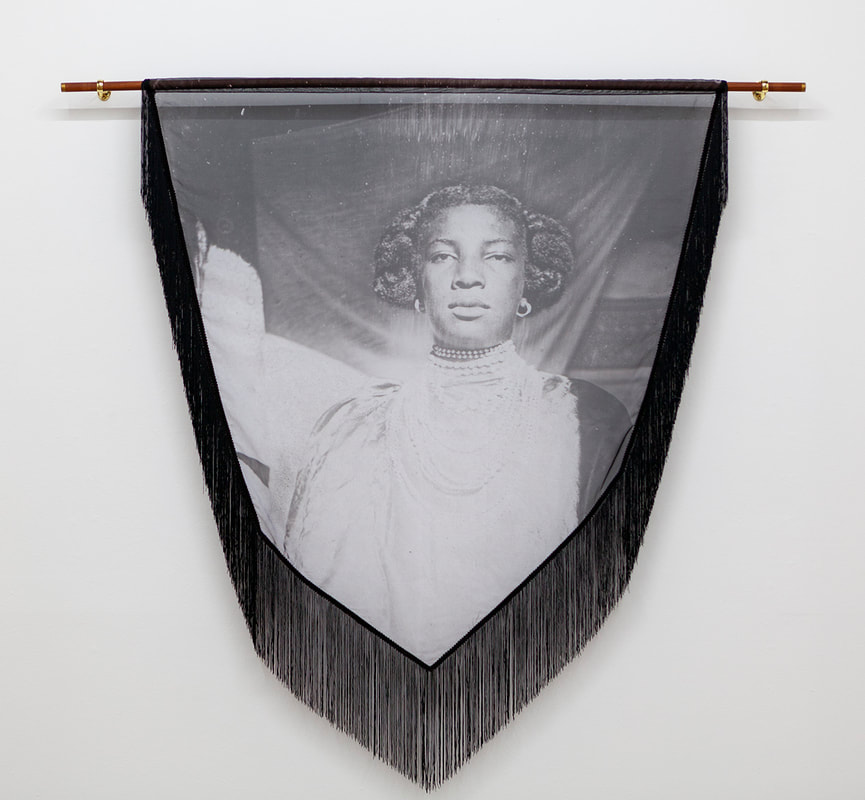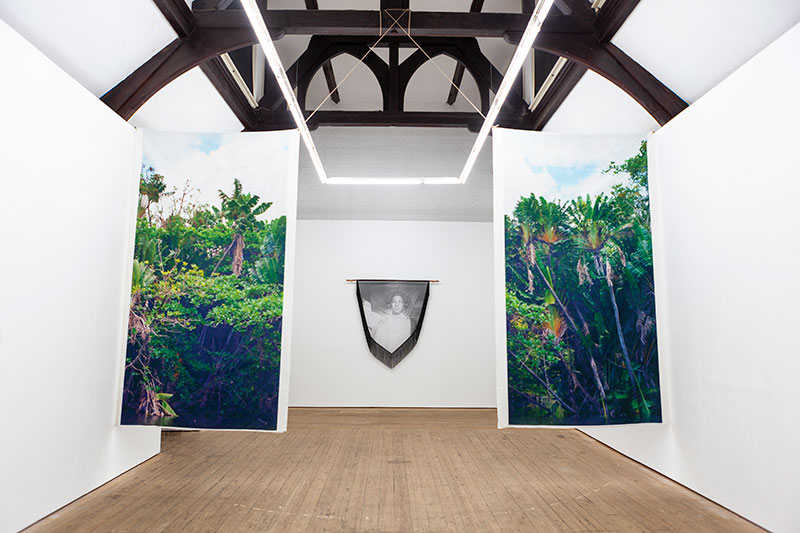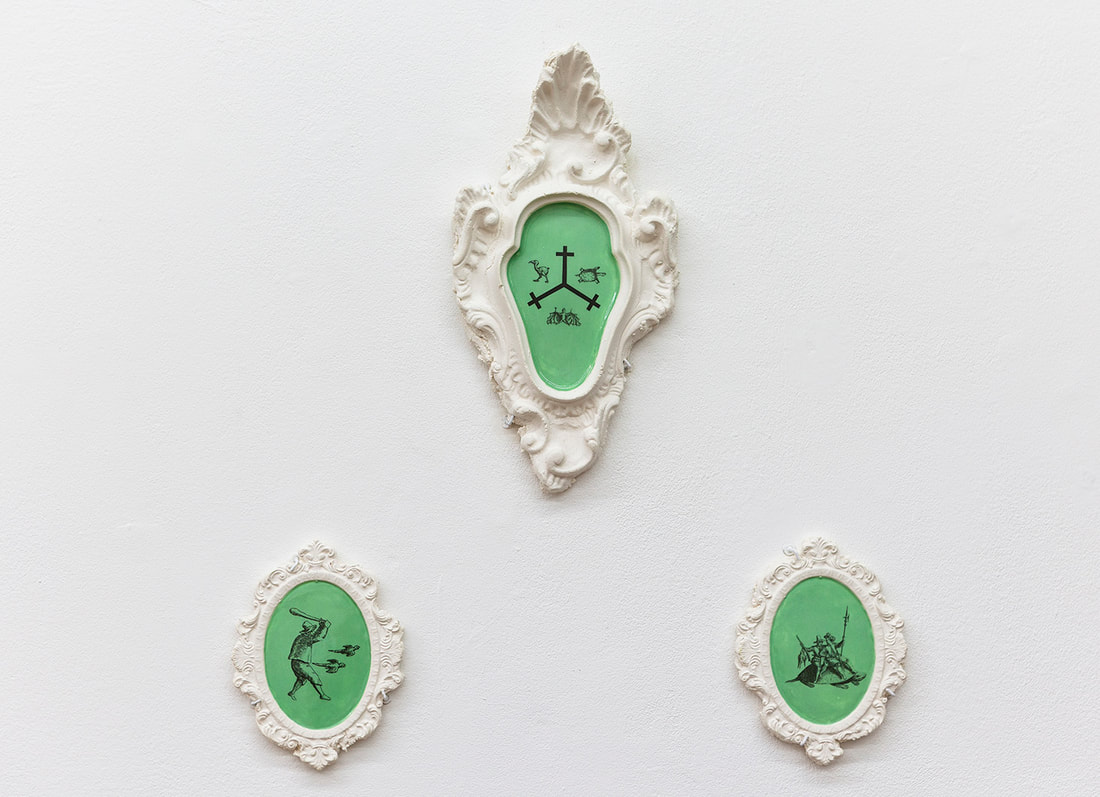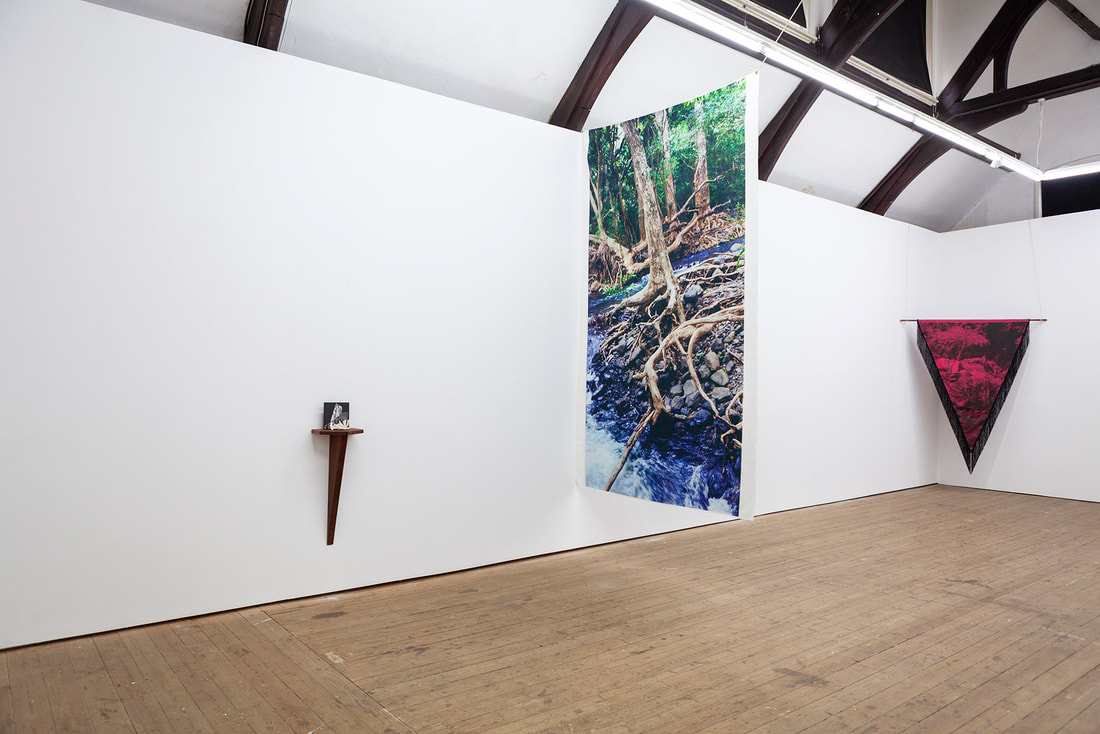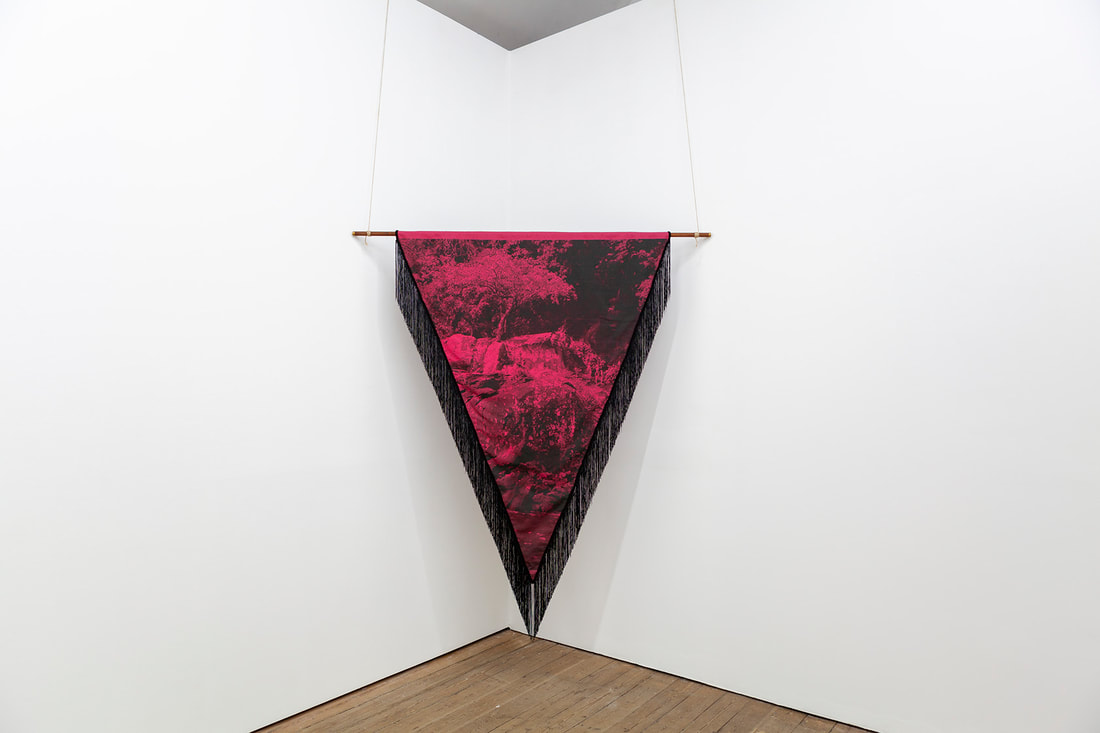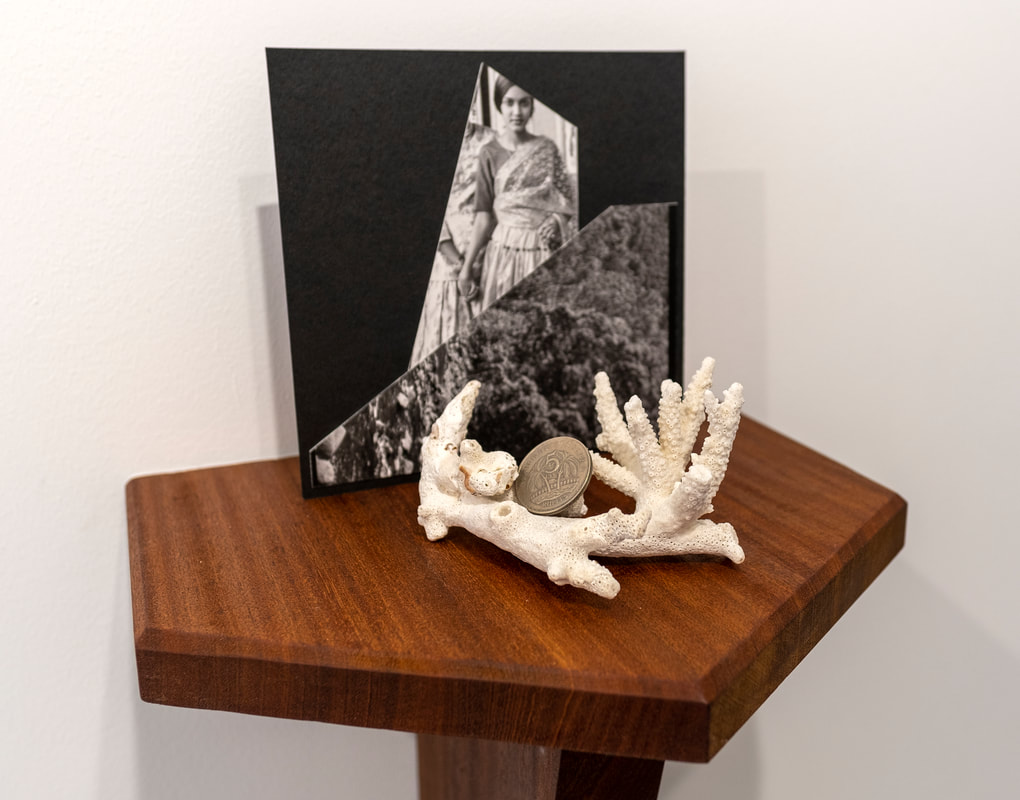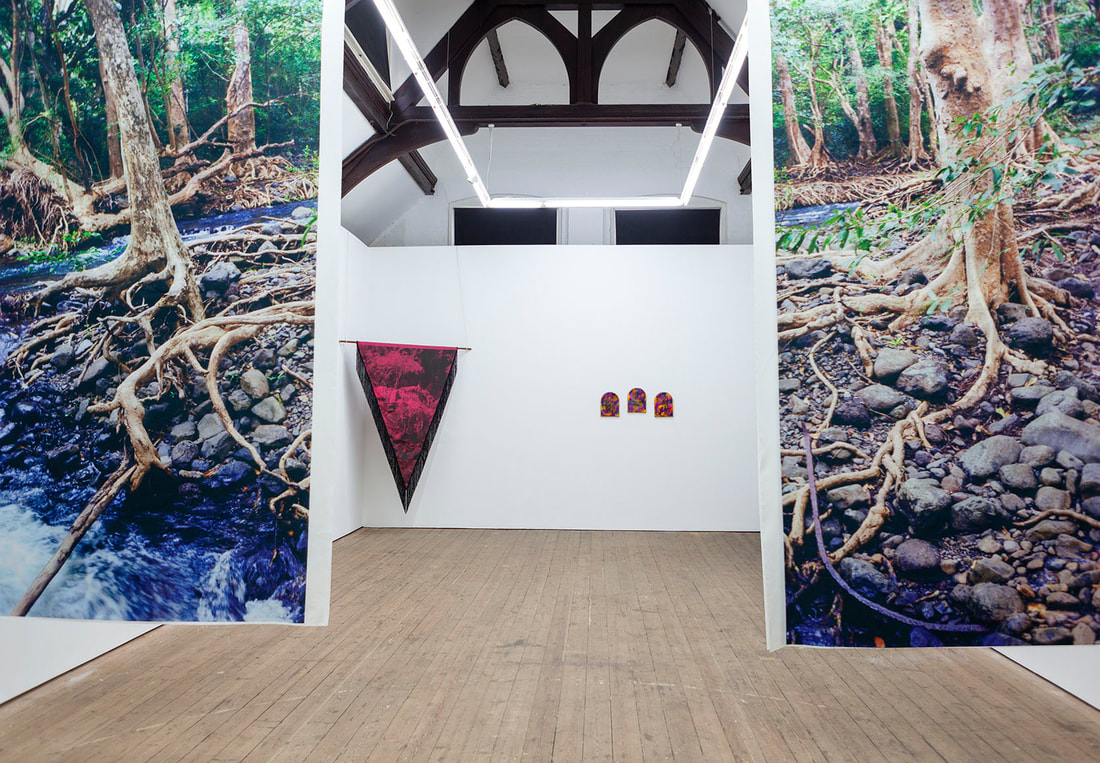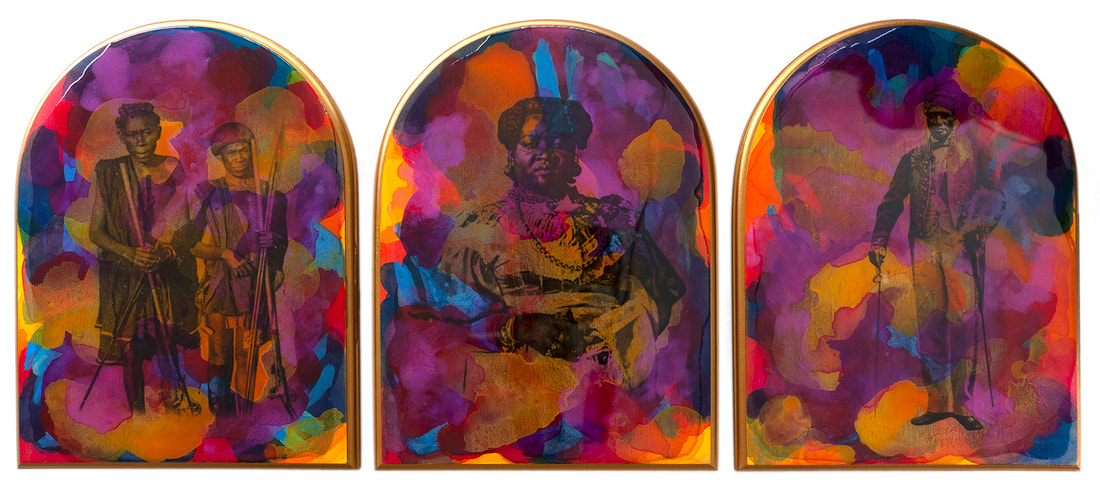Shiraz Bayjoo: Rivyer Nwar / 16 March - 7 May 2022
|
|
Rivyer Nwar (Black River) draws together recent bodies of work by Shiraz Bayjoo (b. Port Louis, 1979) that explore the intersecting socio-political, ecological and colonial histories that exist within the expanse of the Indian Ocean. While Bayjoo was born in Mauritius his research extends across the other lands and peoples scattered across this region. Re-framed portraits of the Sakalava Queens of Madagascar for example offer a more nuanced understanding of the slave trade. Ultimately oppressed and displaced they had previously become wealthy in supplying Madagascan’s as slaves on the one hand, while simultaneously resisting attempts at colonial sovereignty. While slavery existed within the region long before the arrival of European plantations, it was taken to a wholly new, more industrial level of inhumanity under those conditions. With the movement of peoples brought forcibly by European powers, came the genetic entanglement of generations of subjugated and enslaved communities, both indigenous and displaced. Creolisation represents pathways of survival and resistance from within the displacement of the plantation colony. In this way it has begun to symbolise rebirth, and the possibility of healing through the acknowledgment of the traumas enacted upon the landscape. The exhibition draws parallels between the brutal approach of early capitalism to land and people, with both exploited in the name of production and monetisation. As ecosystems gave way to plantations and cane fields, flora and fauna was swept aside, in some cases never to return. The Creole communities of Mauritius have begun to connect to Rastafarianism as an international identity that takes custodianship over the lands they have been displaced to – having witnessed the same violence and erasure as the indigenous ecologies of the land. Through the healing of the land, the possibility of healing ourselves emerges. A powerful symbol of creole identity and resistance, the Mauritian Rivyer Nwar was once a site of multiple communities of people who had escaped the violence of slavery on the plantations. These groups of escapees, hiding in the inaccessible forest and mountain island interior are commonly known as ‘maroons’. These hidden encampments were met with fierce repression with the chasse des marrons, meaning literally “maroon hunt”. Masquerading as a perverse form of sport it was used as a central means to maintain the colonial establishment and slavery system. Through ceramic, textile, print and sculpture the exhibition re-presents and re-contextualises images both of those in power and those repressed, mediating our reception away from that of their original intention and audiences. Reframing and subverting Dutch and French colonial records, Bayjoo seeks to return the humanity and dignity to the people who were objectified and reduced within these archives. Opening Tuesday 15 March, 6 - 8.30 pm The exhibition runs Wed - Sat, 12 - 6pm until 7 May 2022 For the artists CV and further information please click here |
